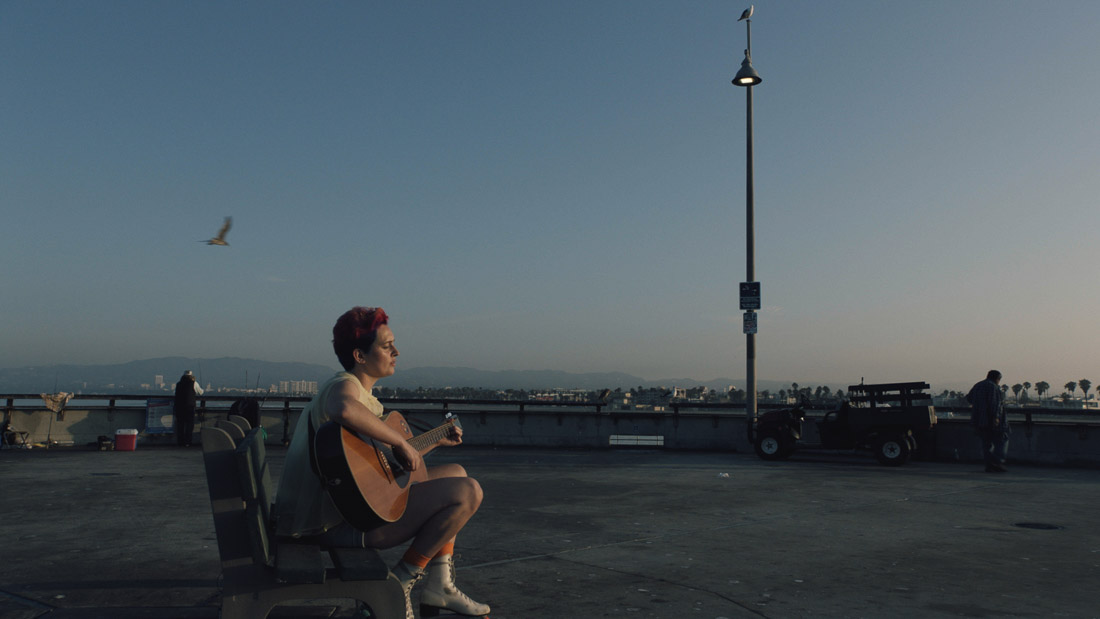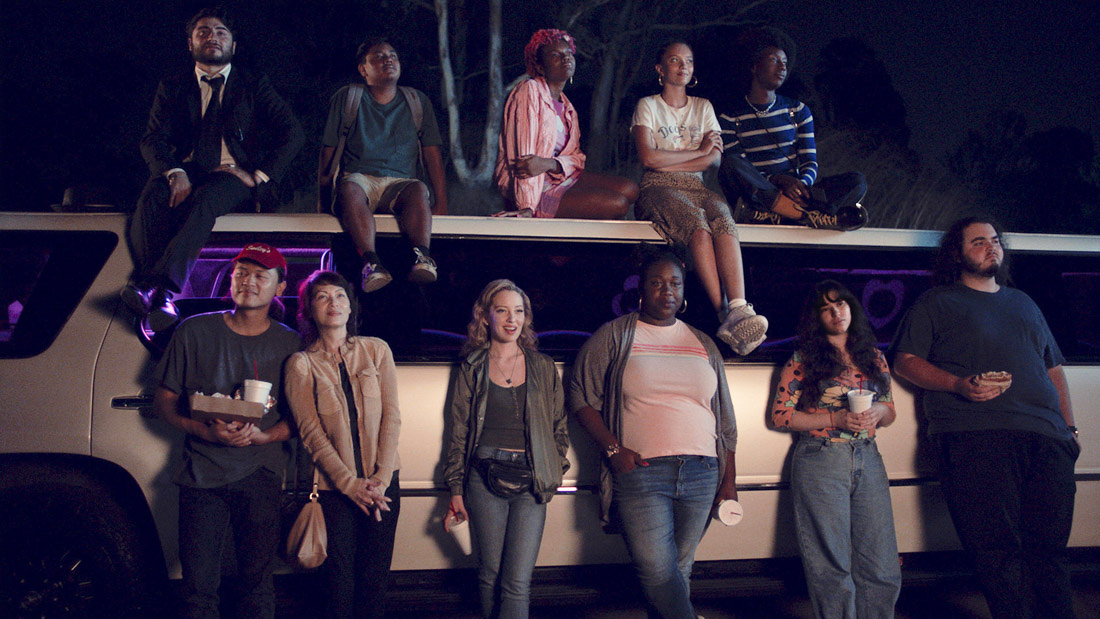
Vivid, tender, playful, funny, raw, and deeply moving, its narratives choreographed to the rhythms of spoken word, Summertime is an exhilarating paean to the power of poetry. Inspired by the performers at a spoken word poetry workshop, director Carlos López Estrada invited the 25 young Los Angelenos to embark on a collaborative journey, taking those texts to make a film that evokes their feelings and experiences, literally, in their own words. Upbeat, and full of hope, Summertime lifts you up, even when the subject matter is sad or serious – because they are making the truth of their lives into something beautiful.
Taking place over the course of a single day, our first guide to the City of Angels is a young guitarist softly singing, her magenta hair a flaming torch as she skates away into the distance, the wide blue of the Pacific a breath away. Different narratives move through the film, one scene gliding into the next, illuminating the characters and the city. Not all the scenes and texts are equally compelling, but even in that slight roughness there is the evocation of youth and its impulsive, irrepressible emotions. Missteps, confusion and embarrassment – it’s all out there. This poetry is far from Wordsworth’s “emotion recollected in tranquility” – and it as it is meant to be. Its immediacy, its unabashed, unfiltered urgency is its strength. Not all the characters elicit my admiration and not all their choices are wise, to say the least, but sometimes they made me want to stand up and cheer.
Summertime possesses the flair and fantasy of a musical, depicting the feelings, thoughts and dreams of these young Angelenos as well as the sidewalks, alleyways, bookstores, buses, kitchens and limousines of the City of Angels. Although its texts are created from the stuff of the young writers’ lives, it is not a documentary, and while many of the writers perform in the film, they are not portraying themselves, but a character. Kitchen workers in a Korean restaurant; Anewbyss and Rah, two aspiring rappers rhyming on the street; charming Tyris in search of a hamburger – “I’ve never been straight in my life and I’m on a mission”; a therapist who prescribes rap; a babysitter word-warrior on the bus; jilted Sophia who wants “my brain to be a complex work of art”; a hostile waitress in a trendy restaurant; Paulina arguing with her mother over red lipstick who claims her power in a stand-out dance number fantasy; and many more – some are characters we get to know over the course of the film, some are seen only for a fleeting moment; all bring color and texture to this vibrant portrait of the city.

The film captures the pace and cadence of these young people skating on the periphery of adulthood, and it pulses with the energy of their thoughts and feelings: outrage at gentrification and homophobia, the misery of rejection and feelings of inadequacy, the pain of body shaming, the relentless oppression of poverty, ambivalence on leaving home, and dreams of making it big. After all, LA is a city of dreams. The camera movement, scene transitions and choreography of city life move from the real to the surreal, embracing the ephemera of ordinary days, and the realm of fantasy, playing with timeline and imagery.
Full and proper disclosure – I love interconnecting stories, and I always feel a frisson of delight when an inconsequential character, a side character I may have utterly overlooked in one story turns up as the main character of their own story, suddenly seen in a different light. You may not really notice the character of Marquesha (played by Marquesha Babers) when she first appears onscreen, but as her story arc develops, and she reaches out beyond her sadness, her humor, compassion and courage shine out in an outstanding, memorable performance. Marquesha also has one of my favorite lines in the film, which works for me both literally and figuratively: “Maybe we not even depressed, maybe we just hungry.”
Summertime will participate in the Carmel International Competition at the 36th Haifa International Film Festival, which will take place online from October 3 – 10, 2020. The full schedule and ticket information will be available on the festival website: https://www.haifaff.co.il/eng
Summertime
USA 2020 90 min. | English | Hebrew subtitles
Directed by Carlos López Estrada; Screenplay: Dave Harris, 27 Get Lit Poets; DP: John Schmidt; Editor: Jonathan Melin; Music: John W. Snyder; Cast: 25 Get Lit Poets





